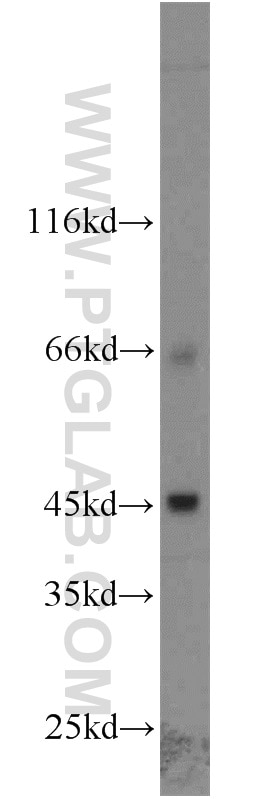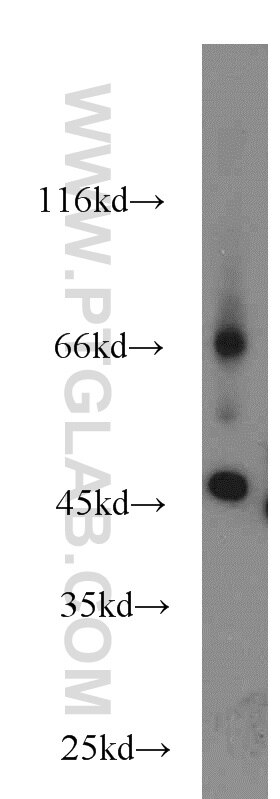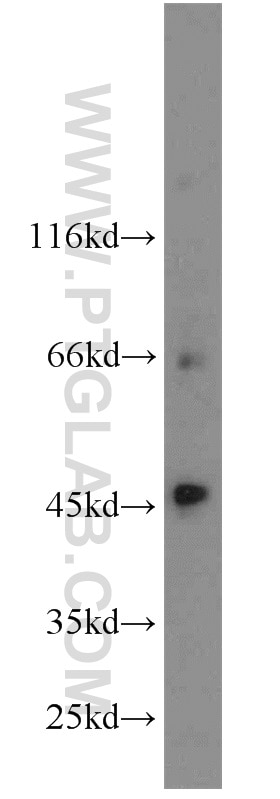SLC36A4 Polyclonal antibody
SLC36A4 Polyclonal Antibody for WB, ELISA
Host / Isotype
Rabbit / IgG
Reactivity
human
Applications
WB, ELISA
Conjugate
Unconjugated
Cat no : 24066-1-AP
Synonyms
Validation Data Gallery
Tested Applications
| Positive WB detected in | A549 cells, HEK-293 cells, PC-3 cells |
Recommended dilution
| Application | Dilution |
|---|---|
| Western Blot (WB) | WB : 1:500-1:2000 |
| It is recommended that this reagent should be titrated in each testing system to obtain optimal results. | |
| Sample-dependent, Check data in validation data gallery. | |
Product Information
The immunogen of 24066-1-AP is SLC36A4 Fusion Protein expressed in E. coli.
| Tested Reactivity | human |
| Host / Isotype | Rabbit / IgG |
| Class | Polyclonal |
| Type | Antibody |
| Immunogen | SLC36A4 fusion protein Ag21142 相同性解析による交差性が予測される生物種 |
| Full Name | solute carrier family 36 (proton/amino acid symporter), member 4 |
| Calculated molecular weight | 504 aa, 56 kDa |
| Observed molecular weight | 41-66 kDa |
| GenBank accession number | BC047374 |
| Gene symbol | SLC36A4 |
| Gene ID (NCBI) | 120103 |
| RRID | AB_2879424 |
| Conjugate | Unconjugated |
| Form | Liquid |
| Purification Method | Antigen Affinity purified |
| Storage Buffer | PBS with 0.02% sodium azide and 50% glycerol pH 7.3. |
| Storage Conditions | Store at -20°C. Stable for one year after shipment. Aliquoting is unnecessary for -20oC storage. |
Background Information
SLC36A4 (also known as proton-coupled amino-acid transporter 4, PAT4), is a member of the solute carrier (SLC) 36 family which functions as transporter for amino acids and derivatives. SLC36A4 is widely distributed at the mRNA level in normal tissues and many cancer cell lines. It modulates the mTORC1 signaling and is essential for the proliferation of cancer cells. In addition, small GTPase Rab12 controls the degradation of SLC36A4, which indirectly modulates mTORC1 activity and autophagy. This antibody can recognize the endogenous SLC36A4 protein in multiple cell lines.
Protocols
| Product Specific Protocols | |
|---|---|
| WB protocol for SLC36A4 antibody 24066-1-AP | Download protocol |
| Standard Protocols | |
|---|---|
| Click here to view our Standard Protocols |




